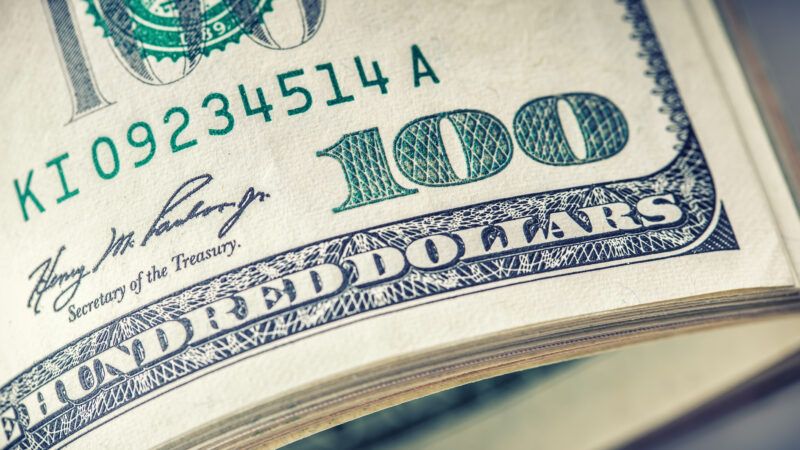California Lawmakers Unanimously Approve the State's First Basic Income Program
The idea of attaching fewer strings to government assistance is gaining currency.

The idea of attaching fewer strings to government assistance continues to gain currency. On Thursday, the California legislature unanimously passed a budget trailer bill that will create the state's first guaranteed income pilot program.
Under the lawmakers' plan, the state's Department of Social Services (DSS) will get $35 million to dole out in grants to cities and counties that will then set up local basic income schemes. Grants will be prioritized for programs focusing on "pregnant individuals" and young adults 21 or older who've aged out of extended foster care programs.
State Sen. Dave Cortese (D–San Jose) said in a press release Thursday that participants of these pilot programs could end up receiving monthly payments of as much as $1,000 each.
"The first-of-its kind pilot we championed in Santa Clara County is only one example of guaranteed basic income working successfully to improve lives and lift people out of poverty," said Cortese, referencing a similar program launched in 2020 that provided 72 young adults formerly in foster care programs $1,000 monthly stipends. "I'm excited that 40 million Californians will now get a chance to see how guaranteed income works in their own communities."
The bill that passed the legislature yesterday largely leaves it up to DSS to come up with a plan for how to distribute the $35 million to local governments. In order to be eligible for grants, cities and counties have to show that their basic income programs are getting nongovernmental funding worth at least 50 percent of the state money they're receiving.
A number of privately funded universal basic income (UBI)–type programs have sprung up in California in recent years. The most prominent is Stockton's Economic Empowerment Demonstration, which gave a $500 monthly stipend to 125 city residents over the course of two years. That program launched in 2019 and concluded in February of this year.
In March, Oakland Mayor Libby Schaaf announced the launch of an Oakland Resilient Families partnership, which will provide 600 families with a $500 monthly cash stipend for 18 months. That program is funded entirely by a collection of philanthropic groups, including the nonprofits Family Independence Initiative, Mayors for a Guaranteed Income, and Oakland Thrives, a public-private partnership.
Nearby Marin County has also launched a program to provide a $1,000 stipend to 125 low-income women of color with at least one child over the course of two years. That program has received $3 million from the Marin Community Foundation, a nonprofit, as well as $300,000 from the Marin County government.
The latter two programs exclude white people from eligibility, which could create legal problems for the state government should it try to direct public dollars toward them.
In May, the checks started to roll out for San Francisco's new basic income program for artists. That program, funded by the city and administered in partnership with the Yerba Buena Center for the Arts, will provide $1,000 monthly stipends to artists who, among other qualifications, lost income during the pandemic and whose artistic practice "is rooted in a historically marginalized community."
The bill passed by lawmakers yesterday expressly excludes any money an individual receives from a state-funded guaranteed income program from counting as income when determining their eligibility for other means-tested state or local benefits. The intent there, it appears, is to prevent a "benefits cliff" whereby people lose out on other government benefits by virtue of getting more income.
For supporters, the benefits of guaranteed income programs over traditional welfare are twofold. The provision of unconditional cash benefits means government bureaucrats aren't micromanaging the spending decisions of program beneficiaries. The more universal these programs are, meanwhile, the fewer hoops people have to jump through in order to qualify for assistance.
Their promise at cutting down on government bureaucracy and paternalism is one reason some libertarian scholars have supported UBI-type programs.
The basic income programs that have rolled out in California so far, including the new state-level one, partially fulfill that promise. Their small size and narrow eligibility criteria, including race- and gender-based restrictions in some cases, mean they're obviously not universal. By giving out cash, they do manage to be unconditional.
Having passed the legislature, the bill creating California's basic income pilot now goes to Gov. Gavin Newsom's desk for a signature.
Rent Free is a weekly newsletter from Christian Britschgi on urbanism and the fight for less regulation, more housing, more property rights, and more freedom in America's cities.


Show Comments (157)